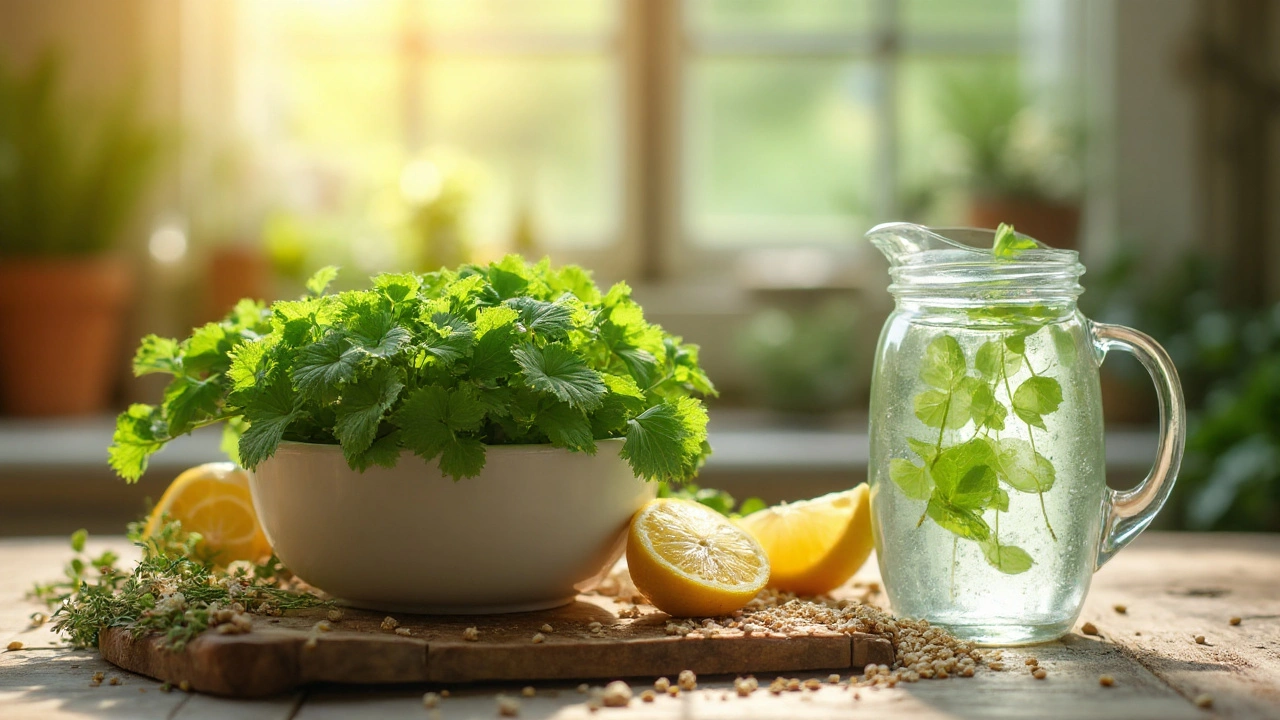Anti-Inflammatory Herbs: Simple Steps to Calm Your Body
If you’ve ever felt achy joints, irritated skin, or stubborn sinus pressure, you’ve probably wished for a fast, natural fix. The good news is that many everyday herbs pack a powerful punch against inflammation without the side effects of pills. Below you’ll find practical ways to add these herbs to meals, drinks, and daily routines so you can feel better fast.
Why anti-inflammatory herbs matter
Inflammation is the body’s alarm system. It’s useful when you get a cut, but chronic inflammation can wear down organs, raise blood pressure, and worsen allergies. Herbs such as turmeric, ginger, and hibiscus contain compounds that calm the alarm, lower cytokine spikes, and support healthy immune responses. Unlike over‑the‑counter NSAIDs, these plants also bring antioxidants, which neutralize free radicals that otherwise damage cells.
Research shows that a diet rich in anti-inflammatory herbs can reduce allergy symptoms, ease eye irritation, and even protect the heart. For example, the post “Top 10 Reasons to Choose Hibiscus as Your Daily Supplement” explains how hibiscus flavonoids lower blood pressure and fight oxidative stress. Similarly, “How an Allergy‑Friendly Diet Can Ease Year‑Round Allergy Symptoms” highlights low‑histamine foods and herbs that keep the immune system from overreacting.
Top herbs you can use today
Turmeric – The bright yellow root gets its fame from curcumin, a molecule that blocks inflammatory pathways. Mix a teaspoon into smoothies, soups, or golden‑milk drinks. Pair it with black pepper for better absorption.
Ginger – Fresh or powdered, ginger soothes the gut and reduces joint pain. Add sliced ginger to tea, stir‑fry, or bake it into biscuits. A ginger‑lemon shot each morning can calm an upset stomach and cut swelling.
Hibiscus – Brew hibiscus flowers into a tart tea; add a bit of honey if you like. The tea not only tastes great cold in summer, but it also supports blood pressure and offers anti‑inflammatory antioxidants.
Boswellia – Also called frankincense, boswellia resin is sold in capsules or as a resin powder. It’s especially helpful for back pain and arthritis. Take the recommended dose with meals for best results.
Green tea – While not a herb in the strict sense, its catechins are powerful anti‑inflammtory agents. Swap one coffee for green tea daily and notice less jittery nerves and calmer inflammation.
These herbs work best when you pair them with a balanced diet low in processed sugars and refined carbs – the same principles the “Allergy‑Friendly Diet” article recommends. Aim for colorful plates, plenty of leafy greens, and consistent hydration.
Start small: sprinkle turmeric on roasted veggies tonight, sip ginger tea after dinner, and keep a hibiscus tea bag in the fridge for a quick refresh. Over the next few weeks, you’ll likely notice reduced puffiness, smoother skin, and fewer allergy flare‑ups.
Want more ideas? Check out our related posts: “How to Manage Eye Inflammation During Allergy Season” gives eye‑specific tips, while “How Long Does Albuterol Last?” explains when you might still need a rescue inhaler. By combining these herbs with proven medical advice, you create a well‑rounded plan that tackles inflammation from every angle.
Remember, herbs are natural but not a free pass to ignore doctors. If you have chronic conditions or take medication, talk to a healthcare professional before adding new supplements. With the right mix, anti‑inflammatory herbs can become a daily ally in keeping you comfortable and healthy.

Hemlock Water Dropwort Supplement: Transform Your Health Naturally
Discover how Hemlock Water Dropwort can boost immunity, reduce inflammation, and support detox with safe, science‑backed dosing for everyday wellness.